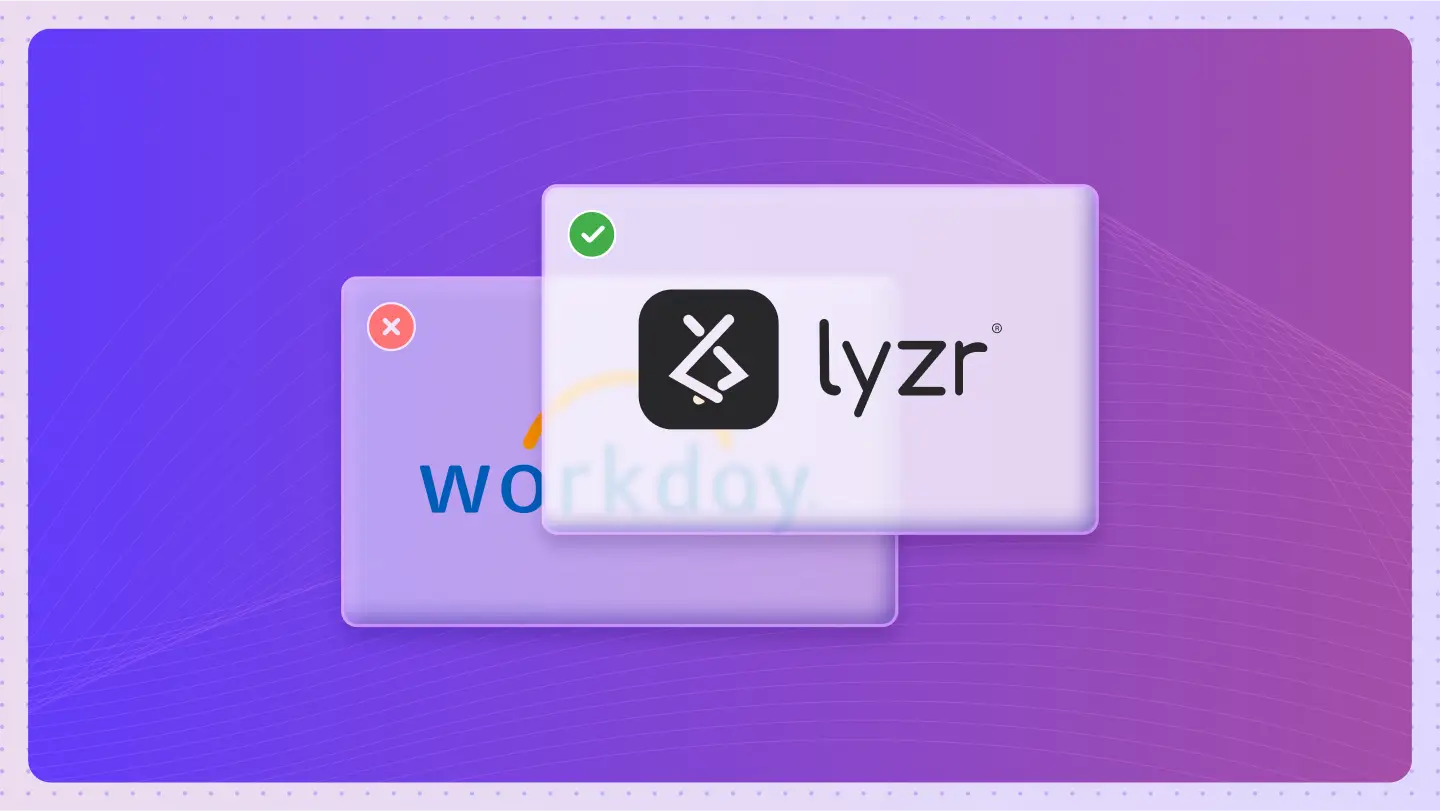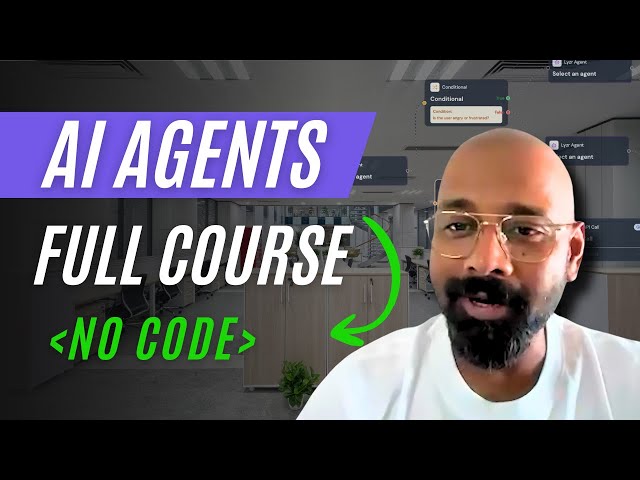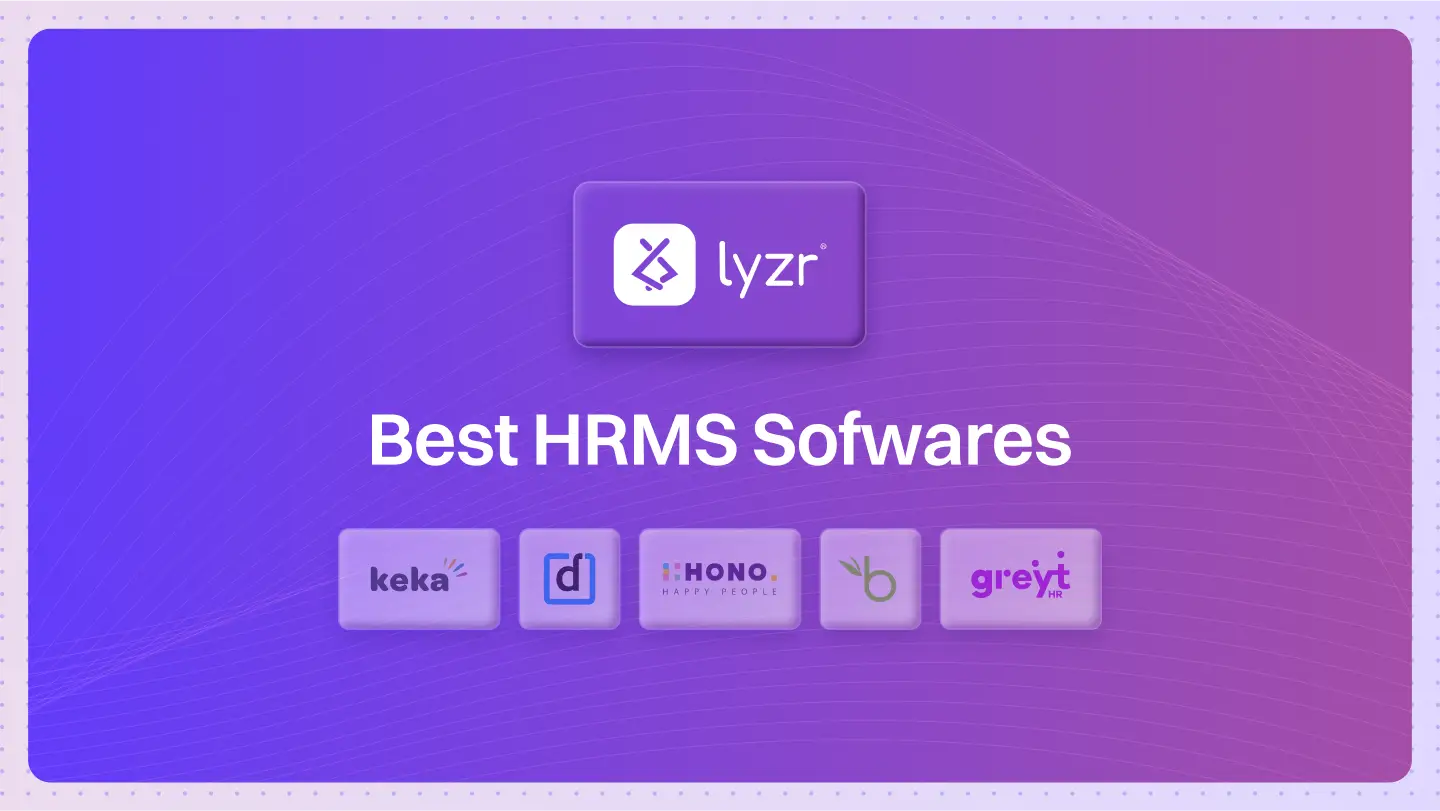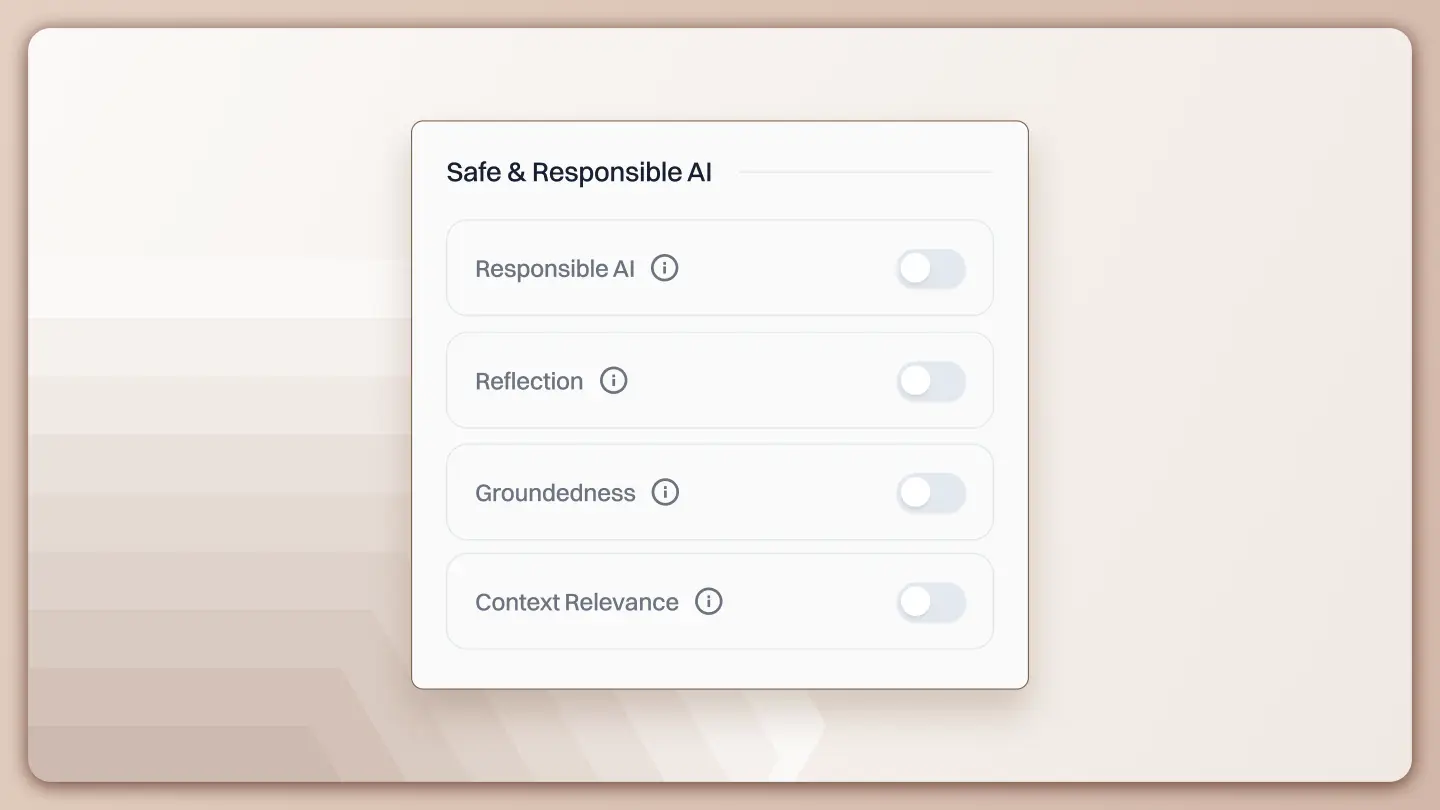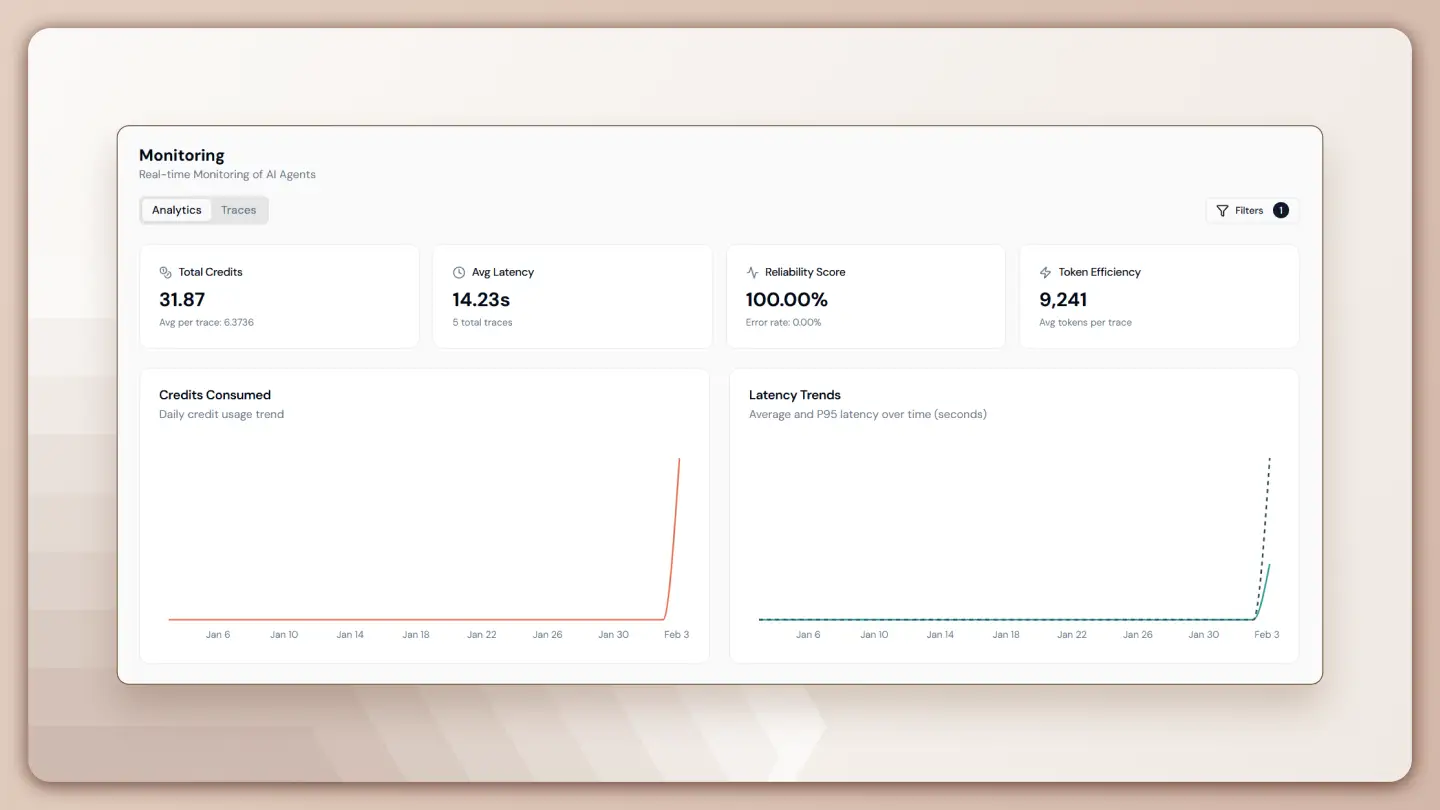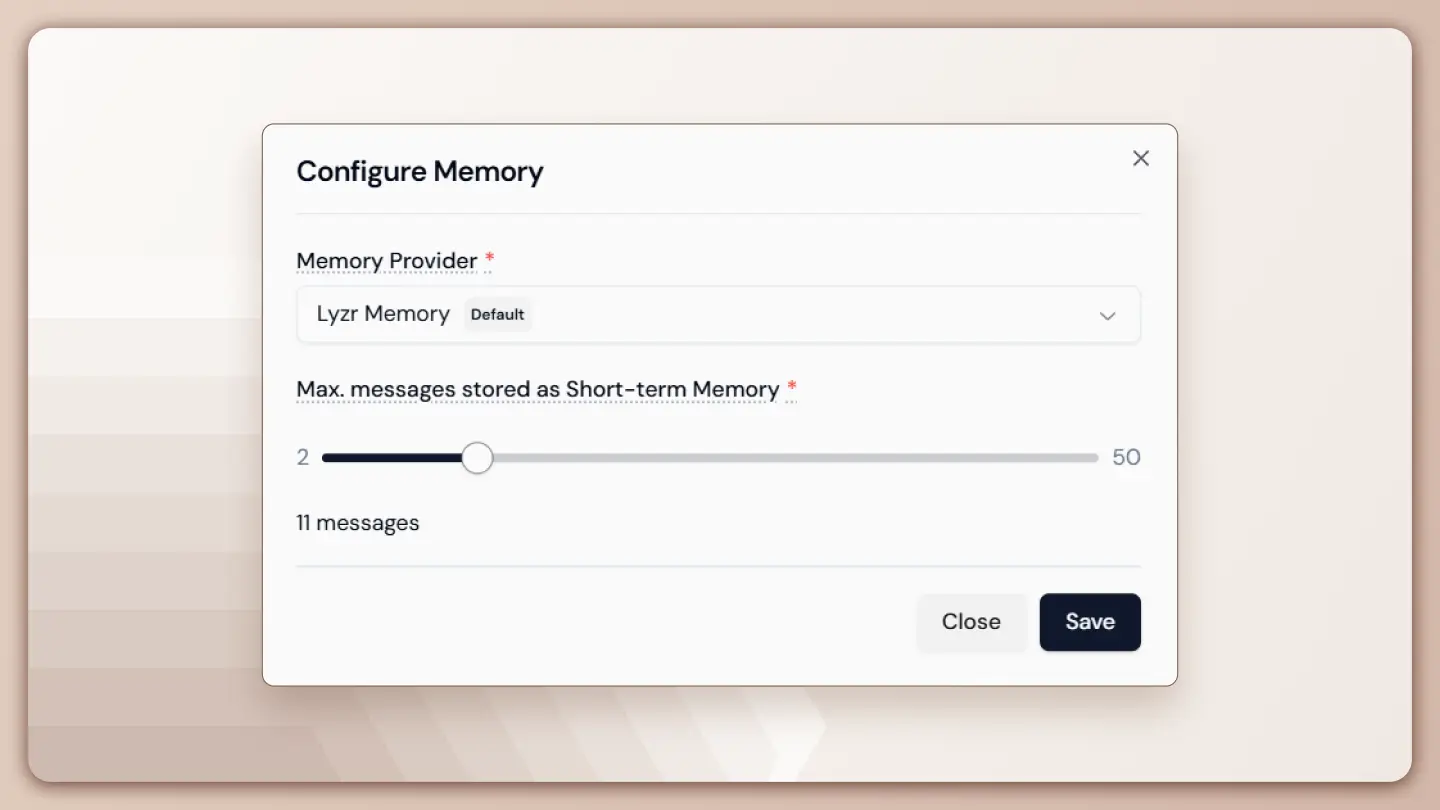Table of Contents
ToggleHR today isn’t just about managing payroll or tracking leave. It’s about making work better, for people, for teams, and for the entire organization. Whether it’s simplifying onboarding, keeping compliance in check, or surfacing insights that shape better decisions, the right HRMS (Human Resource Management System) can make a big difference.
But with a flood of platforms out there each claiming to be the smartest, fastest, or most user-friendly it’s easy to feel stuck.
This blog breaks it down for you. We’ve compared the top HRMS software solutions, highlighting what they do well, how they’re priced, and which types of teams they suit best. If you’re looking to find the right fit, you’re in the right place.
What is HRMS?
A Human Resource Management System is a comprehensive software solution that automates and manages core HR functions like payroll, recruitment, performance tracking, onboarding, and more. It serves as a centralized platform that streamlines people’s operations and enhances strategic decision-making. An effective HRMS can transform your HR operations, moving them from reactive administrative tasks to proactive strategic initiatives. It centralizes employee data, automates routine processes, and provides valuable insights that can drive better decision-making. In fact, a significant number of organizations (around 80%) already leverage some form of HRMS to streamline their operations]. For businesses of all sizes, from agile startups to expansive enterprises, selecting the right HRMS is crucial for efficiency, compliance, and fostering a thriving workforce.
Traditional hiring methods are time-consuming and often inconsistent. The next section highlights how modern HRMS software addresses this with smarter, more seamless recruitment solutions.
Seamless Candidate Experience Through a Flawless Recruitment Gateway
A strong candidate experience is no longer optional; it’s a key factor in building a trusted and appealing employer brand. Today’s job seekers expect a smooth, transparent, and efficient application process.
That’s where a modern recruitment management system comes in. With features like automated communication, real-time application updates, and easy-to-use interfaces, these systems help companies engage candidates from the very first click. A well-designed recruitment gateway ensures that applying for a job feels simple and professional, improving the experience not only for candidates but also for recruiters.
Advanced HRMS platforms with intelligent recruitment modules allow organizations to deliver a seamless, branded experience that reflects their company culture and keeps top talent interested throughout the process.
Key Metrics for Evaluating Recruitment Management Software Performance
To truly gauge how well recruitment management software is performing, organizations need to keep an eye on some key performance indicators (KPIs). These include metrics like time-to-fill, cost-per-hire, applicant drop-off rates, and the offer acceptance ratio. A solid recruitment management tool comes equipped with built-in analytics that give you real-time insights is a great example of embedded analytics in action to give you real-time insights with built-in analytics that give you real-time insights into these metrics, helping you make informed decisions based on data.
Artificial Intelligence is reshaping how companies approach hiring. One of the most useful applications is AI-driven resume parsing, which helps HR teams automatically scan and understand resumes without having to read each one manually.
Instead of spending hours going through applications, recruiters can now rely on AI to extract key information, like skills, job experience, and education and match candidates to the right roles more accurately. This not only saves time but also helps companies make smarter hiring decisions, faster.
As recruitment continues to evolve, tools with AI-powered features like resume parsing are becoming essential for teams that want to stay efficient and competitive.
And resume parsing is just the beginning.
Here’s a glimpse of the AI agents transforming modern recruitment workflows:
- Resume Screener Agent
- JD-to-Score Agent
- Offer Generator Agent
- Interview Scheduler Agent
- Interview Feedback Agent
- Offer Generator Agent
These agents handle everything from shortlisting resumes and ranking applicants to scheduling interviews, gathering post-interview feedback, and even generating offer letters. With automation this intelligent and modular, recruitment is no longer a manual pipeline, it’s a scalable system.
To ensure your AI-powered recruitment tools are truly making a difference, it’s crucial to track the right performance indicators. Metrics like time-to-hire, cost-per-hire, quality of hire, and offer acceptance rate give you insight into what’s working and where there’s room to improve.
But implementing these tools isn’t just about data and automation. It’s part of a bigger shift toward strategic HR.
Making the Right Choice: A Strategic Approach
Adopting a Human Resource Management System isn’t just a tech upgradeit’s a long-term investment in your people and processes. The right HRMS reduces administrative work, minimizes errors, and empowers your HR team to focus on strategic initiatives instead of repetitive tasks.
Whether you’re a growing startup or an established enterprise, a well-chosen HRMS can become a competitive advantage helping you build more efficient, data-driven, and people-first operations.
With many great options available in the market, the key lies in aligning your HRMS with your business size, industry, and future goals. By taking a structured approach evaluating your needs, testing features, checking integrations, and prioritizing support you’ll be equipped to choose a platform that not only solves today’s pain points, but grows with you into tomorrow.
Before finalizing any software, it’s important to understand what features matter most. From core HR functions to advanced analytics and AI-powered recruitment, the right set of tools can make all the difference in your daily operations.
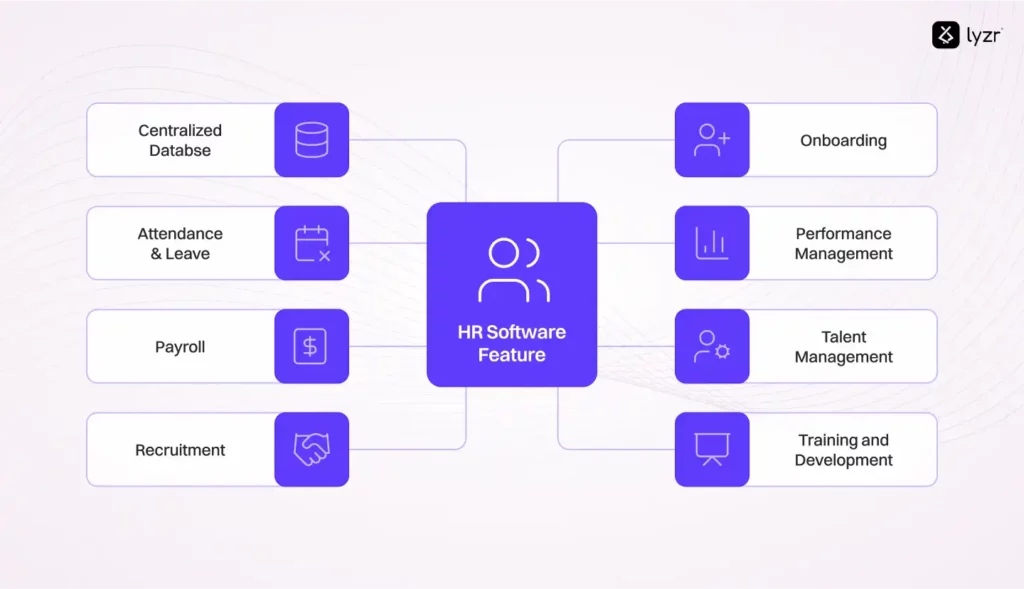
Unveiling India’s Top HRMS Solutions for 2025
A recent analysis by HONO has spotlighted the premier Human Resource Management System (HRMS) software options available in the Indian market, emphasizing the shift towards technology-driven HR operations. The review underscores the importance of selecting an HRMS that aligns with an organization’s specific needs, regardless of its size, and highlights features like seamless integration, automation, and scalability as crucial considerations.
Here are the five standout HRMS platforms, according to the report:
1. HONO:
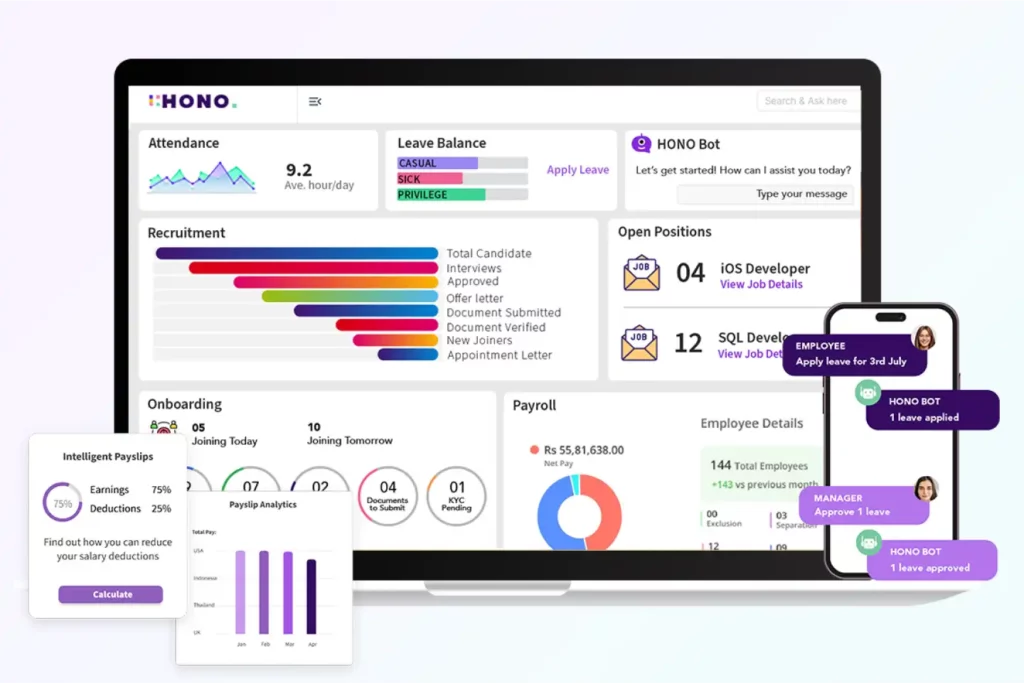
Positioning itself as a comprehensive Human Capital Management (HCM) suite, HONO emphasizes nurturing human relationships through technology.The platform is recognized by Gartner and trusted by over 300 brands. It offers a full range of services from intelligent onboarding and workforce planning to recruitment, performance management, and employee offboarding. A key differentiator for HONO is its integration of Generative AI across its modules, including AI-powered resume screening, interview analysis, and a helpdesk for real-time support.
2. BambooHR:
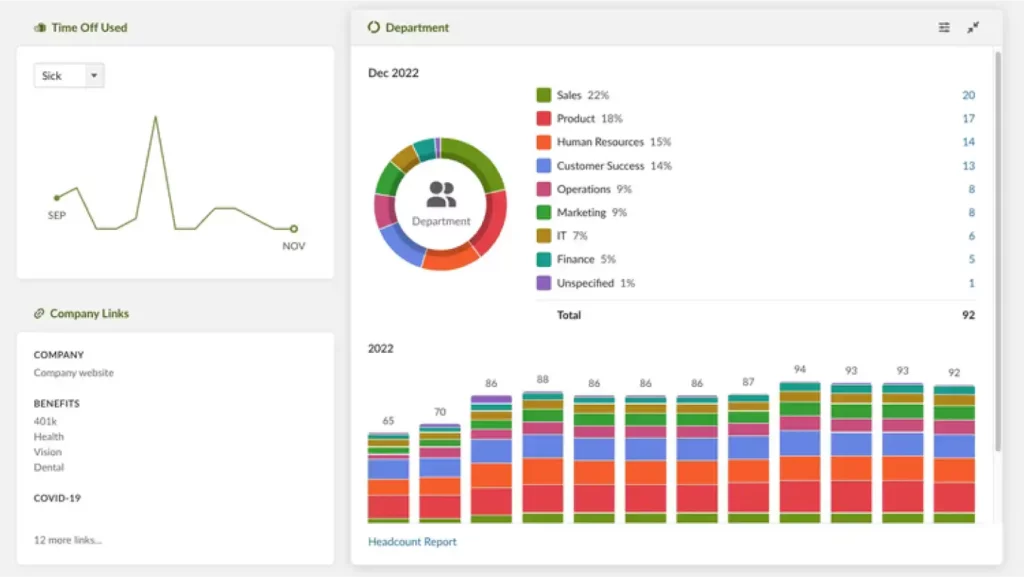
Dedicated to helping organizations cultivate a positive workplace, BambooHR is a complete HR ecosystem designed to manage, protect, and analyze employee data.Its primary focus is on the Small and Medium-sized Business (SMB) market, offering solutions that cover the entire employee lifecycle from hiring to exit management.The platform aims to empower organizations to make smarter, data-driven decisions.
3. Darwinbox:
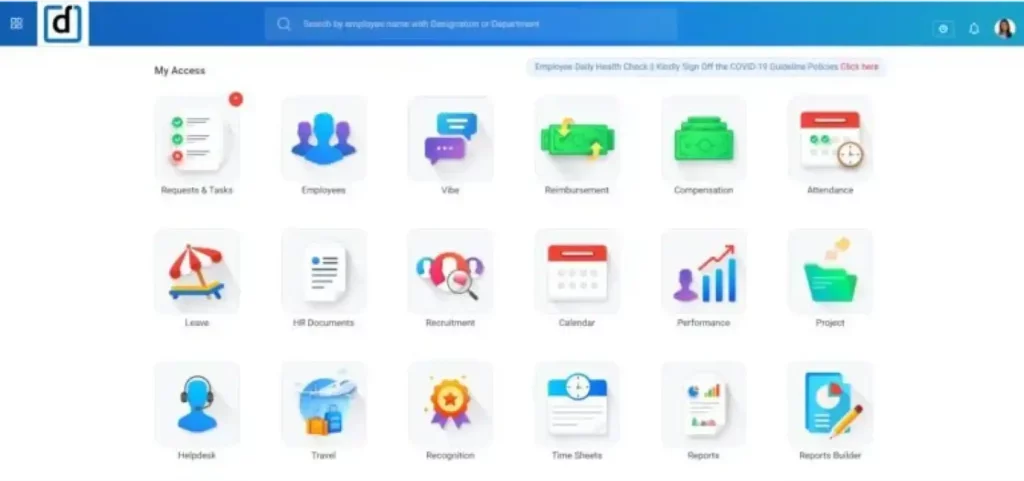
This new-age, agile HCM suite is designed for both enterprises and growing businesses, enabling them to automate routine HR operations and gain actionable insights.Darwinbox stands out with its use of the latest technologies, including Artificial Intelligence (AI) and Machine Learning (ML), to provide a user-friendly, mobile-first experience. It consolidates the entire employee lifecycle into a single platform, encompassing workforce management, payroll, talent acquisition, and people analytics.
4. Keka HR:
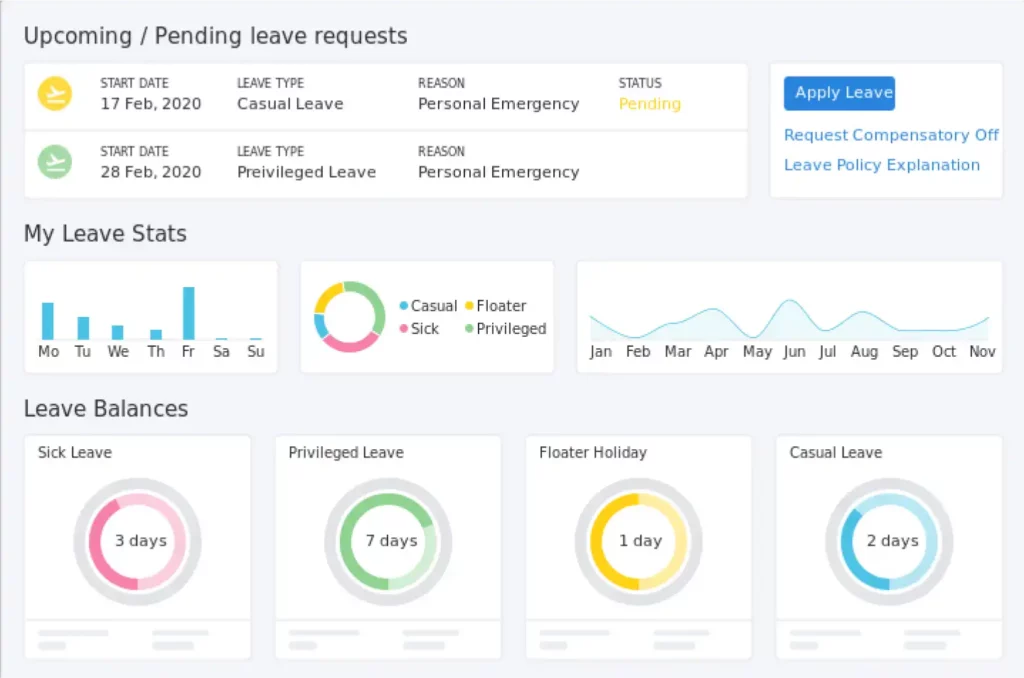
Founded in 2015, Keka HR set out to modernize traditional HR processes, with a particular focus on the SMB market.The platform offers a unified solution for managing people, payroll, and projects. Its services include human resource management, payroll and leave management, and professional services automation.Keka HR is designed to foster an engaged, employee-driven culture through data-driven decision-making capabilities.
5. greytHR:
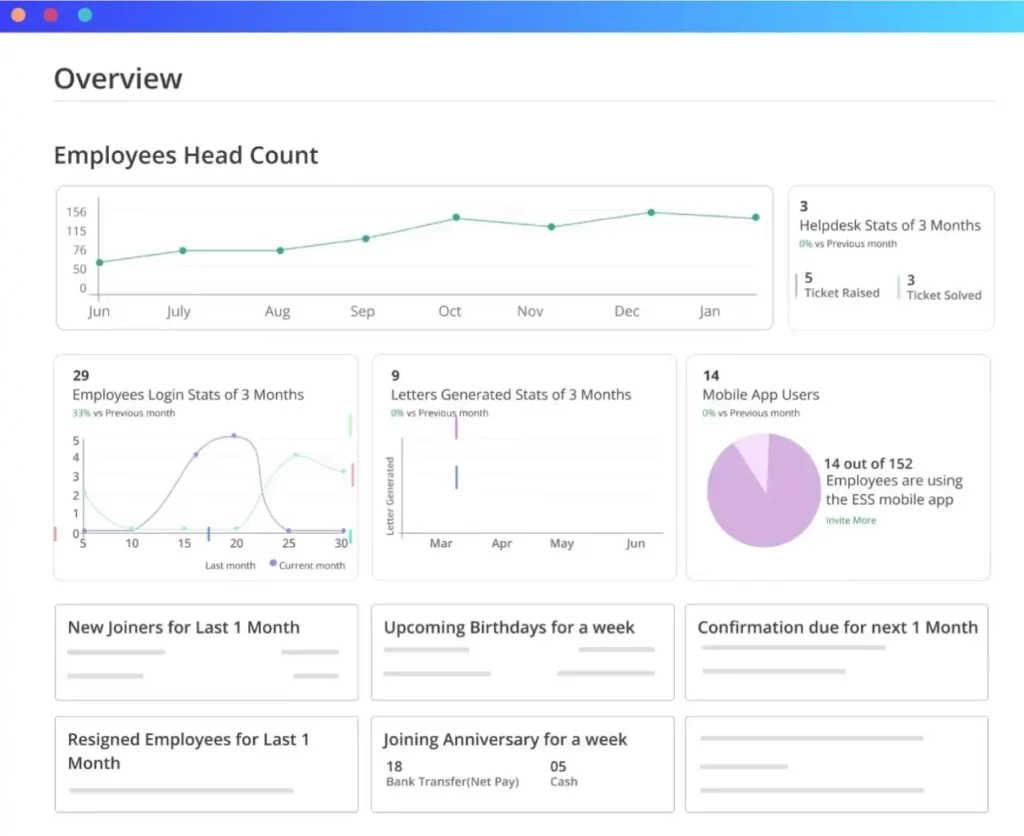
With its origins in 1994, greytHR is a seasoned player offering a full-suite HRMS with advanced people operations and payroll solutions for businesses in India, the Middle East, and Southeast Asia. The platform provides over 50 HR and payroll tools to manage the complete hire-to-retire cycle. It is known for its ability to expedite complex and critical HR functions securely and can be easily integrated and configured across various industries.
How to Choose the Right HRMS Software: Key Criteria to Consider
Selecting the right HRMS (Human Resource Management System) is a critical decision that can shape how your business manages people, processes, and growth. To make the right choice, it’s important to follow a thoughtful, step-by-step approach. Here are the key factors to consider:
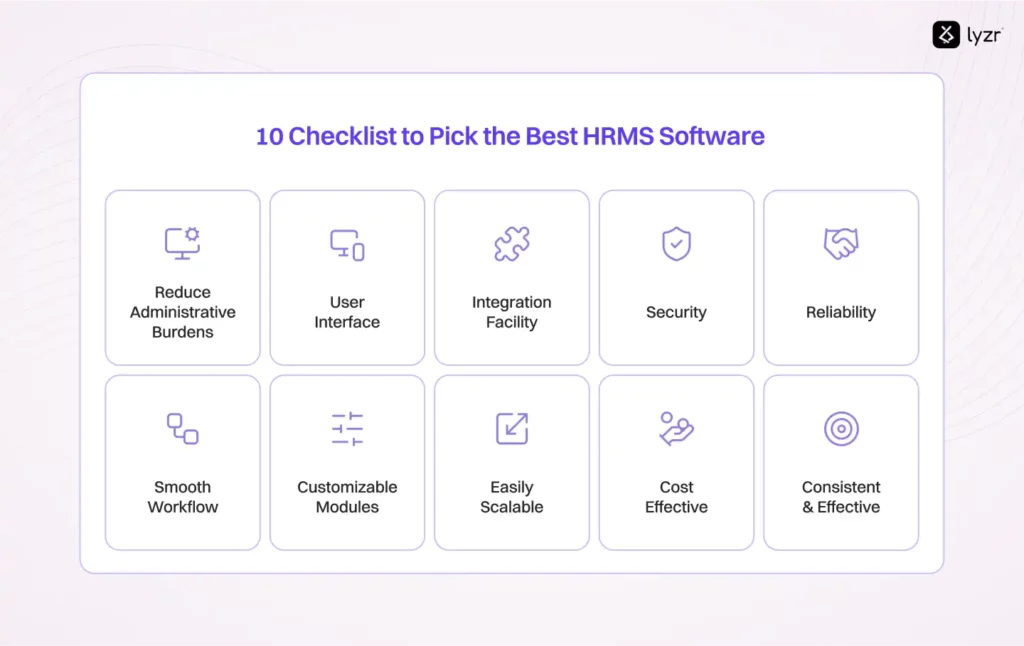
- Understand Your Business Needs: Start by identifying your HR challenges and priorities. Are you looking to automate payroll, improve recruitment, or streamline employee data? Clarifying your needs will help you choose a system that aligns with your goals.
- Compliance Management: Ensure the HRMS can help you stay compliant with local labor laws, tax regulations, and other legal requirements especially as these vary across regions and industries.
- Look for the Right Features: Make a checklist of must-have features such as attendance tracking, performance reviews, onboarding tools, or learning management systems. Choose a platform that ticks your most important boxes.
- Take a Demo or Free Trial: Always test the software before committing. A demo or free trial gives you hands-on experience with the interface, features, and user experience.
- Set Your Budget: Define how much you’re willing to spend. Compare pricing plans and see what features are included. Make sure you’re getting value for your money without unnecessary extras.
- Read Customer Reviews
Learn from other businesses. Reviews and testimonials can give insight into the software’s reliability, performance, and customer satisfaction. - Check for Integration and Customization
A good HRMS should integrate seamlessly with your existing tools (like payroll, CRM, or email systems) and offer customization options to match your workflows. - Prioritize Security
Since HRMS software handles sensitive employee data, strong security measures like encryption, role-based access, and data backups are non-negotiable. - Assess Customer Support
Reliable customer support is essential. Look for providers that offer responsive, knowledgeable help through chat, email, or phone. - Think Long-Term
Choose software that can scale with your business. It should be flexible enough to support your growth whether that means more employees, new locations, or changing needs. - Ensure Mobile Accessibility
In today’s mobile-first world, it’s important that your HRMS offers mobile access so employees and HR managers can stay connected on the go.
Conclusion: The Future of HR is Integrated and Intelligent
Selecting the right HRMS is a pivotal decision one that shapes how your organization manages, supports, and grows its people. From ensuring compliance and data security to improving workflows and employee experience, a well-chosen HRMS becomes the backbone of a modern HR strategy.
But why stop at just digital transformation?
With platforms like Lyzr, you can take your HRMS from efficient to intelligent. Lyzr’s AI-powered agents plug directly into your existing systems to automate tasks like resume screening, answering employee queries, writing policy drafts, and more all without writing a single line of code.
In an era where speed, personalization, and automation define great HR, Lyzr helps you stay ahead.
🔹 Automate responses to candidates
🔹 Summarize resumes instantly
🔹 Draft performance reviews in seconds
Discover how Lyzr can power your people operations at lyzr.ai.
FAQs
- How much does HRMS software cost?
Pricing varies based on features, company size, and vendors. It could be per employee per month (e.g., $3–$10/employee) or a flat monthly/annual fee. - What should I look for when choosing an HRMS?
Key things to consider include: features, ease of use, integration options, pricing, scalability, mobile access, customer support, and data security. - Is HRMS software suitable for small businesses?
Yes! Many HRMS tools are scalable and offer flexible pricing plans that cater to startups and small to mid-sized businesses. - Can HRMS software handle multiple locations or global teams?
Yes. Many HRMS tools are built to support multi-location and global operations, including multi-currency payroll, localized compliance, and multi-language support. - What is AI-powered HRMS?
AI-enabled HRMS can automate resume parsing, predict attrition, recommend training, and enhance decision-making with predictive analytics.
Book A Demo: Click Here
Join our Slack: Click Here
Link to our GitHub: Click Here

